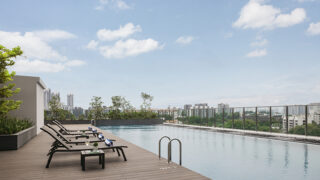Men & Maintenance in Singapore: Can you claim alimony?
There are a substantial number of men who are trailing spouses in Singapore now. But did you know that, until very recently, if a marriage broke down, men were not entitled to maintenance or alimony under any circumstances? So, if you are thinking of moving to Singapore, or you already live here as the ‘house husband’, it pays to do your research!
The following is a story based on some actual facts that highlight current legal issues involved.
Five years ago, Paul and Sarah* were on top of the world. Not only were they celebrating their third anniversary as a married couple, Sarah also found herself being offered a new and exciting job in the banking sector in Singapore, with a comfortable salary and benefits for Paul and herself far exceeding what both had been earning combined.
Before moving, Sarah assured and convinced Paul that they would be financially secure enough with her new job for him to quit his long-standing job as an engineer and move with her without any need to obtain fresh employment after the move.
No sooner had Sarah accepted the role, they found themselves relocating to Singapore. They agreed for Paul to take care of household matters while they settled into their new lives here. They even discussed trying to start a family once they settled down.
An unexpected change
Unfortunately, it wasn’t long before cracks appeared in the marriage. Sarah started spending more time at work than home, often returning in the wee hours of the morning, even on weekends, at times reeking of alcohol. The two hardly spent time together and when they did, quarrels often ensued. Paul says, “Sarah would often accuse me of being lazy and being dependent on her financially. It was as though she had forgotten all the sacrifices I had to make to my own career to move here, which were really for her.”
Six months into their move, and after several arguments, Paul thought that returning to work and accepting any job he could find would resolve their issues. But his life would soon be sent spiralling.
Shortly after Paul started aggressively seeking employment, a serious accident left him fighting for his life. He was severely disabled and unable to work. Paul also underwent therapy to help him deal with this harrowing experience. It came as an abrupt shock when, in the midst of his rehabilitation and recovery, Sarah informed him that she had decided to end their marriage, claiming to Paul that “it was all too much for her”.
She added that he was a burden to her financially and socially. She candidly told Paul that she had moved on. Moreover, she had found “the love of her life” through working in Singapore. Sarah swiftly left home and cut off all contact from Paul. It didn’t take long for Paul to be served with divorce papers. “It was as though I didn’t even know this person. Everything she did made me wonder if this was truly the person I’d been married to”.
Claim or no claim?
Paul had read – in what turned out to be a dated article – that the Women’s Charter only allowed for wives and children to claim maintenance in Singapore, and there was no legal mechanism for men to seek any maintenance from a wife. He despaired and contemplated challenging Singapore as the lawful jurisdiction for his divorce and filing instead in his home county, where men were equally allowed to claim for maintenance as women.
Fortunately, just before leaving Singapore to start going through the courts in his home country, Paul thought to consult a lawyer in Singapore. To his relief, he discovered that the Singapore Family Justice Courts could now allow a claim for maintenance for himself against Sarah due to his circumstances.
Paul sought to make a claim for himself in his divorce proceedings. Eventually, the Court found that Sarah was under a duty to maintain Paul as a result of his incapacity. This was because the accident had occurred during the course of the marriage, and prevented him from maintaining himself and earning a living. In allowing Paul’s claim, the Court also considered some of the following factors, such as:
- the parties’ current and future income, assets and earning capacity;
- their current and future financial needs and obligations;
- the standard of living of the parties before the marriage broke down;
- their respective ages; and
- their respective contributions to the welfare of the family.
The aftermath
Sarah was ordered to maintain Paul until he was cleared to return to work. For now, Paul continues on his path to recovery in the hopes that he will somehow gain his independence once again. “It was a truly traumatic experience, but now I just want to look forward and leave the past behind.”
Paul’s circumstances are uncommon. Maintenance for men in Singapore remains restricted to instances where a husband is incapacitated, by a physical or mental disability or illness, from earning a livelihood and unable to maintain himself and continues to be unable to maintain himself. However, for most men who make the sacrifice to move to Singapore for the sake of their spouses and find themselves earning less or having no employment at all, seeking maintenance for themselves remains an impossibility.
* Names withheld to protect parties’ identities
Read more on getting divorced in Singapore
Don't miss out on the latest events, news and
competitions by signing up to our newsletter!
By signing up, you'll receive our weekly newsletter and offers which you can update or unsubscribe to anytime.




